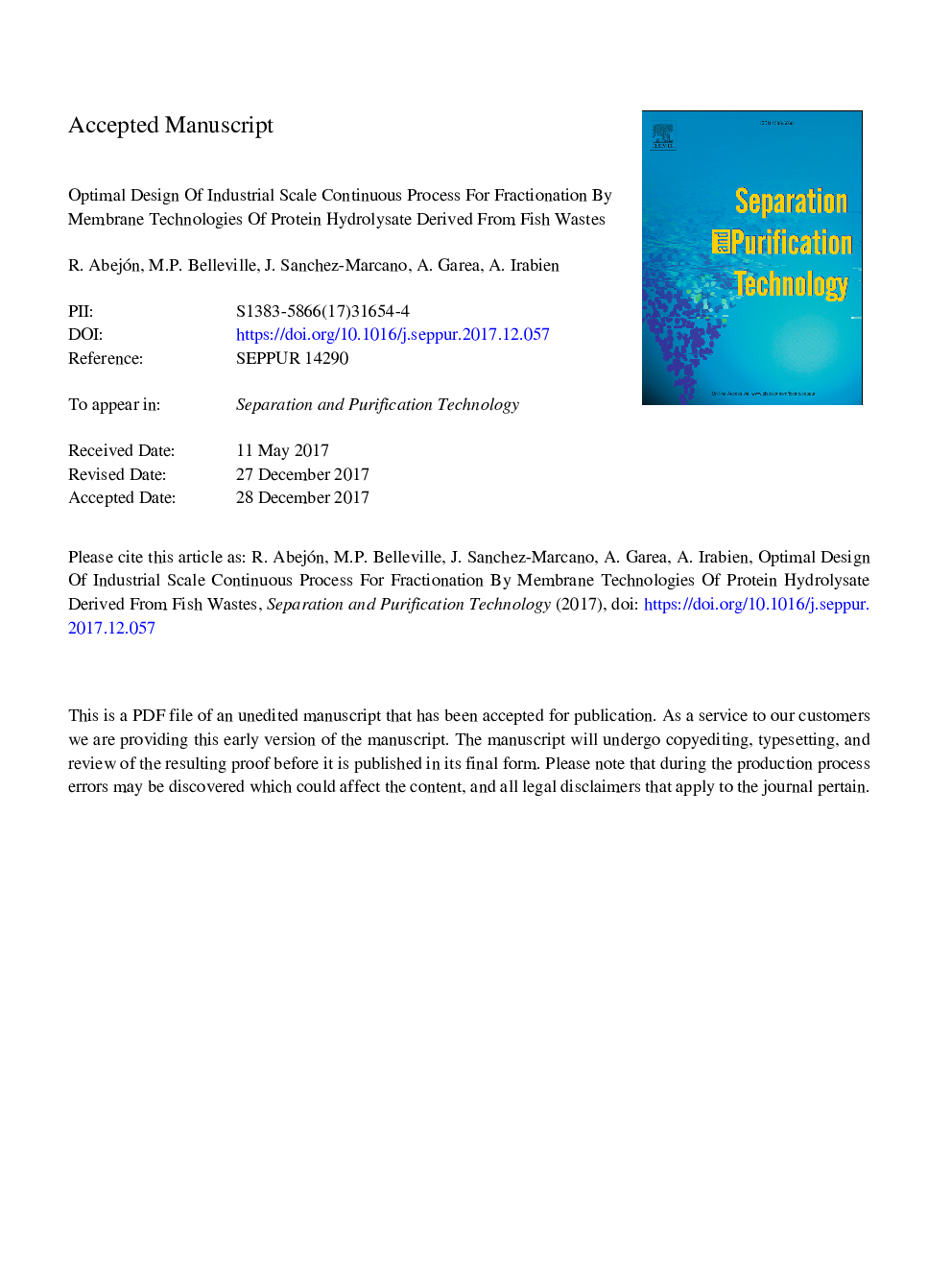| Article ID | Journal | Published Year | Pages | File Type |
|---|---|---|---|---|
| 7043912 | Separation and Purification Technology | 2018 | 38 Pages |
Abstract
The fractionation in an industrial-scale continuous process of a protein hydrolysate obtained from tuna wastes has been proposed. A model based on membrane transport equations, mass balances and economic equations to calculate the main costs of the process was developed. This model was applied to the evaluation of the main technical, environmental and economic aspects of the process and their optimization. The basic cascade configuration resulted better than alternative options like the linear or dual cascades. The freshwater consumption was minimized to improve the environmental and economic performance of the process. Indeed, the implementation of a water recovery and reuse system was the most effective solution. This system was based on the installation of an additional tight nanofiltration stage that reduced the environmental impact of the process (avoiding the need of auxiliary freshwater streams) and increased its economic competitiveness.
Keywords
Related Topics
Physical Sciences and Engineering
Chemical Engineering
Filtration and Separation
Authors
R. Abejón, M.P. Belleville, J. Sanchez-Marcano, A. Garea, A. Irabien,
